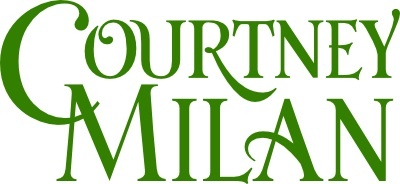Over at Dear Author, there is a lengthy discussion on Red Rose Publishing. I have no first hand knowledge about what has happened over there. There are allegations that Red Rose Publishing has released, and made money, off of books that it has not contracted, that it does not send out royalty statements or checks on time, and that when questioned about this, the owner of Red Rose Publishing sent out abusive e-mails. There have been a few apologists, but nobody seems to have disputed the substance of the allegations. (Doesn’t mean that the allegations can’t be disputed, but nonetheless, fair or no, I have formed an opinion.)
One of the things that keeps coming up in the comments is the notion that dirty laundry should not be aired in public, and therefore these things should not have been talked about.
Don’t get me wrong. I believe that many–in fact, most–aspects of the author/publisher (and author/agent) relationship do not need to be made public. There’s a good reason for that: The publisher wants to do what’s best for the book, and so if there are disagreements–and I list these, not to imply that I have had these disagreements with my publisher, but because they are common things–about what needs to be accomplished in edits, about how to present the book to the public via the back cover copy or the cover itself, and so forth–ultimately, even if our specific reasons differ, our goal is the same, and generally, nobody is served by taking the issue public.
This is a reciprocal rule, too. Your publisher will generally not badmouth you in public, either, even if you are months over deadline, or you make unreasonable demands, or you ask for covers that make no sense in the modern market, or you scream at your editor because she says that the black moment in your book isn’t working for her.
But there is a point where a line gets crossed. Think of it like a boyfriend. Imagine you dated some dude and you never really clicked and you decided he was a total poser. Now imagine that you find out that this dude is dating a distant acquaintance. You don’t go up to her and say, “You know, Eric is kind of a poser.” You don’t want to be the gossipy cat who is out to hurt people out of sour grapes.
But what if Eric isn’t your poser ex, but he’s the guy who date-raped you that one night? Assuming you are comfortable sharing that information, yes, you tell your friendly acquaintance. She might still think you’re a catty bitch–alas, such is human nature–but your disclosure under those circumstances is actually very courageous, and you should feel proud of yourself, not ashamed.
As a general rule, you and your publisher are in a symbiotic relationship, where you are each trying to make each other as much money as possible. You’re trying to write really, really good books, and promote them; they’re trying to produce them in an attractive package, and get them into as many venues as possible. You both want to produce really good books that people will love.
But. If a publisher is regularly and willfully releasing books without a contract [!!!–side note:Â I just can’t get over this. If it is true, and I do not have first hand knowledge that it is, then not only is RRP unethical, which is bad enough, but it is also monumentally stupid–which is, in my book, unforgiveable.]Â that’s not a symbiotic relationship. It’s date-rape, clean and simple. You do not have to sit there and take that in silence. And you should not feel ashamed for having the courage to speak out.

Word. A thousand times over.
Agreed… if a person/group/business is regularly engaging in unethical practices that can/may bring harm to others?
Somebody should speak up.
That’s not being a gossip or catty bitch-that’s being courageous.
Thanks for a wonderful post. It’s hard to speak up and I’m grateful for the people who do.
In such a situation, there’s always individuals who deny the situation is bad (whatever they may think privately) and blame the person who speaks out. Because, maybe if we’re all quiet, good girls, everything will come right.
It rarely does.
I totes love you. Especially the part about being monumentally stupid being unforgivable.
Seriously–there are some really great epubs out there. Research them. Ask other authors about their experiences.
I need a “what Courtney says” rubber stamp today, for how often I am agreeing with you in various venues and on different topics.
It isn’t easy to speak up, and no one is necessarily obligated to do so. But being the courageous one who “outs” such treatment is not something to be ashamed of, especially when you find that there are others in the same boat who just needed someone else to go first.
Thanks everyone!
In some ways, I think there’s even more of an obligation for those of us who are not in those awful situations to speak up. So that people know that it is not normal to be treated this way.
Yes, you deserve basic professional courtesy. Yes, you deserve someone who doesn’t curse you out when you ask for things you are owed. Yes, you–you.
Dirty laundry is one thing. If someone is stealing your laundry or dirtying your clean laundry that’s something else altogether, especially if they’re likely to steal and dirty your neighbor’s laundry.
Does RWA or any writer’s resources/magazines offer guides to basic business practices or some such? I am by no means knowledgeable about business matters, but some of the things described in that thread just blew my mind.